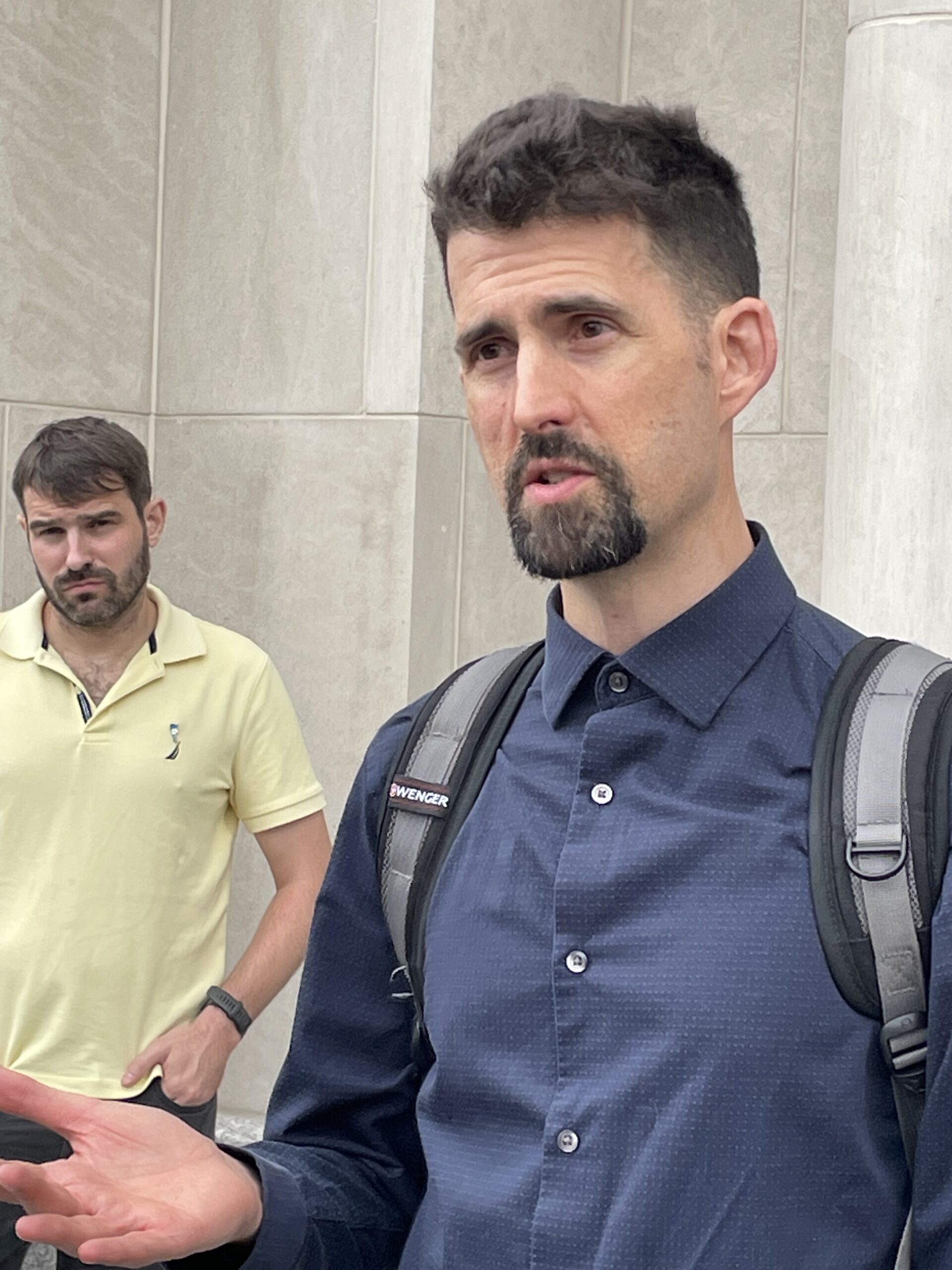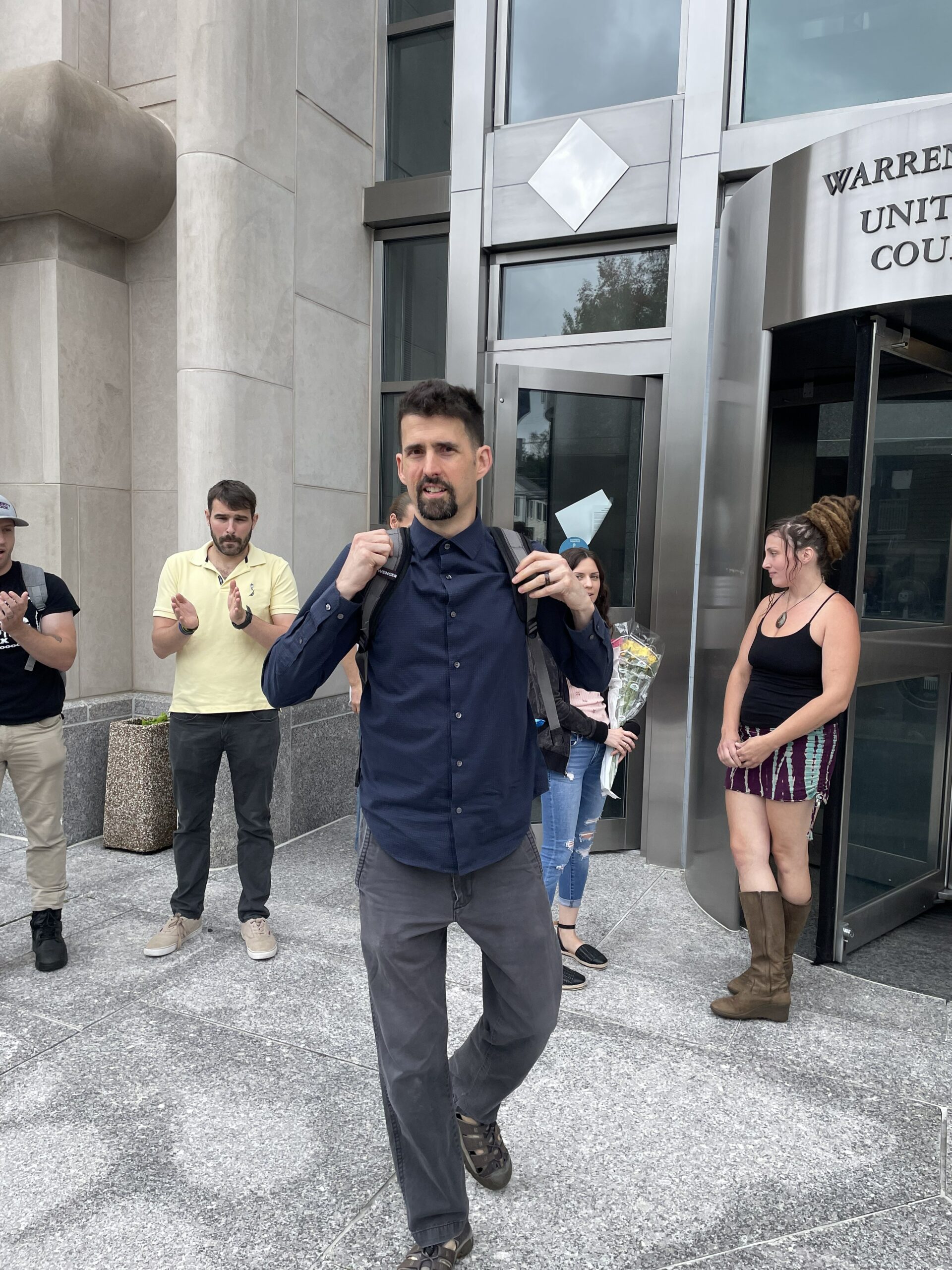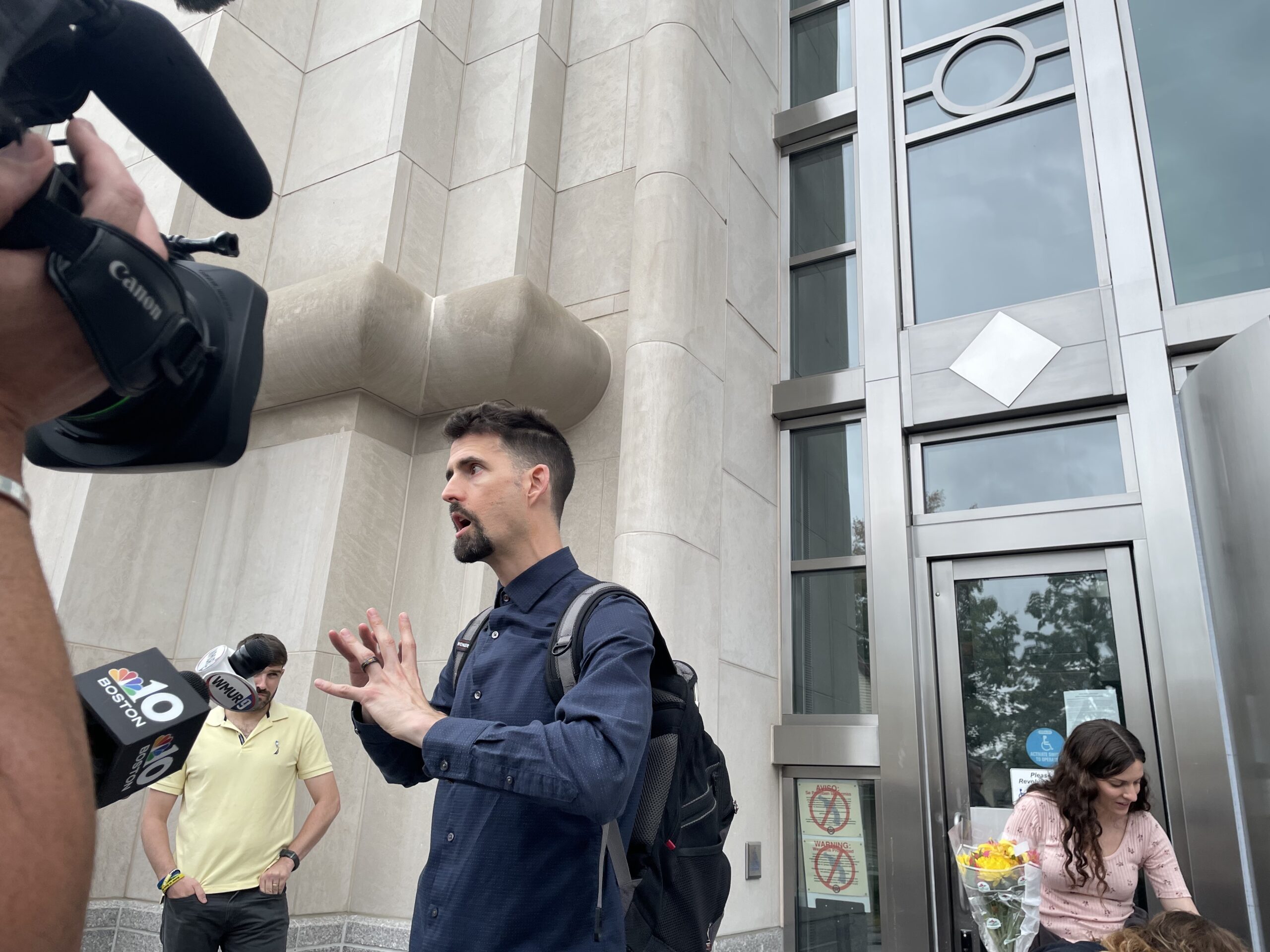NH Crypto King Ordered To Pay $3.5 Million To Scam Victims

Romance scam victims tricked into buying Bitcoin are getting some restitution on the eve of Valentine’s Day, with an order instructing Free Keene’s Ian Freeman to pay them $3.5 million.
The restitution order, issued by United States District Court Judge Joseph Laplante, caps the legal case against the colorful libertarian activist and Free State Project evangelist.
“Ian Freeman’s money laundering business caused many vulnerable people unnecessary anguish. Nothing will ever take away the pain he caused these victims, but I am grateful that the dedicated prosecution team on this case was able to make many of them financially whole,” United States Attorney Jane Young said. “It is rare for victims of romance scams and other international fraud schemes to have their money returned to them because of the anonymity that businesses like Ian Freeman’s offer fraudsters. I urge everyone to protect themselves and their older loved ones by learning the indicators of these types of scams so that you are better prepared to prevent being victimized.”
Freeman is already serving a nine-year prison sentence after his conviction on federal charges of operating an unlicensed money-transmitting business, money laundering, conspiracy to commit money laundering, conspiracy to operate an unlicensed money-transmitting business, and income tax evasion. He moved more than $10 million through his exchanges, according to prosecutors.
Though he never took a direct role in swindling the mostly elderly lonely heart victims, Freeman’s Bitcoin businesses facilitated the thefts, prosecutors alleged. Freeman’s crypto exchanges were an integral part of the cons operated by several different scammers, as the conmen directed victims to buy Bitcoin from Freeman.
Freeman operated his crypto exchanges in a way that attracted criminals, and prosecutors argued, all while charging higher than normal fees. He didn’t register his exchanges with the Financial Crimes Enforcement Network as required by law, he disabled the “know your customer” features on his Bitcoin kiosks, and he made sure customers did not tell him what they did with their Bitcoin, according to prosecutors.
Now, Freeman will have to pay restitution to 29 of the romance scam victims who used his service, victims like Rebecca Viar.
“Ian Freeman was the planner and instigator of this entire scheme,” Viar said in court last year.
Viar, an elderly widow, was ripped off by an online romance scammer known as Michael Glenn Wilson. The crook, who has so far not been charged, used Freeman’s BitCoin exchanges to facilitate the crimes, according to prosecutors.
In Viar’s case, she emptied her savings account, cashed out her insurance policy, took out loans, and even sold her dead husband’s truck. Again and again, Wilson didn’t have her send the money to him but instead instructed her to go to Freeman. Through one of Freeman’s many exchanges, Viar bought Bitcoin that was then deposited into a digital wallet Wilson would empty.
Freeman tried to claim he was, in fact, another victim of the scammers while alternately saying he had no responsibility to the women who lost their savings to romance scammers.
According to Freeman’s telling, he was simply operating the Shire Free Church dedicated to spreading the Good News about Bitcoin. The victims of romance scams and other confidence tricks who started buying Bitcoin from his exchanges were trained by their scammers to lie to Freeman to get around his security system, making him an unwitting accomplice to the scams, he claimed in court last year.
“I’m sorry those people were taken advantage of, and I couldn’t stop them all,” Freeman said.
Jodi Cohen, Special Agent in Charge of the FBI Boston Division, said Freeman cannot avoid his responsibility anymore.
“While no amount of money can make up for the emotional toll Mr. Freeman’s actions have inflicted, it does ensure that he has been held both criminally and financially responsible for what he did. The FBI will never stop working to shut down fraud schemes like this one to protect older folks and help them hang on to their hard-earned money.”
Freeman, whose birth name is Ian Bernard, was one of the early settlers in New Hampshire as part of the libertarian movement known as the Free State Project, though he’s no longer part of it. The Free State Project distanced itself from Freeman in 2014 after his repeated public statements in favor of lowering the age of consent for legal sexual activity.
After getting booted from the FSP, Freeman founded the Free Keene community that’s home to former gubernatorial candidate Nobody, originally Rich Paul; Aria DiMezzo, the self-identified “Trans, Satanic, Anarchist” who ran for Cheshire County Sheriff as a Republican; and Chris Cantwell, the alt-right podcaster known as the Crying Nazi.
Both Nobody and DiMezzo ended up pleading guilty for their roles in Freeman’s Bitcoin empire. Cantwell was recently released from federal prison after he was found guilty of threatening another online white supremacist. Cantwell is currently back in New Hampshire and trying to revive his online media career.







